
see more
Down with gravity!!!
Direction Edgard Navarro
Production Sylvia Abreu
Brazil
3rd Edition
When BrLab’s first edition was held, in July 2011, alongside São Paulo’s Festival de Cinema LatinoAmericano, there was much enthusiasm and a sense it was the beginning of a program that would contribute to the cultural and economic development of the audiovisual sector both in the context of Latin America and Brazil – which still lacked in internationalization and a better integration with our Latin-American geographical surroundings. Moreover, we had the indisputable certainty that we were starting a rather urgent and unprecedented project in Brazil. Four of the 2011 edition new director’s feature projects have reached the screens by 2013, being prominently highlighted in important festivals in Brazil and abroad. From Brazil, Claudio Marques’ and Marilia Hughes’ Depois da chuva (Bahia), and Renata Pinheiro’s Amor, plástico e barulho2 (Pernambuco) made their debut at Festival de Brasília do Cinema Brasileiro’s last edition3 , where each film received three major awards4 . Fernando Coimbra’s O Lobo atrás da porta5 , a São Paulo production, has won the Horizontes award at the “Horizontes Latinos” section of the 61st San Sebastián International Film Festival, in Spain; as well as sharing the award for Best Feature Film at Festival do Rio’s 2013 “Premiere Brasil” with Caru Alves de Souza’s De Menor. From Mexico, David Pablos’ first feature production La Vida después6 , made its international debut at the 70th Venice International Film Festival’s prestigious “Orizzonti “ section.
BrLab’s execution in 2011 was adamant for us to develop a much needed tenacity that brought us to the current edition, held from October 20th to the 26th, 2013, in São Paulo. It has been a bliss to conclude yet another journey alongside 24 participants, who rewarded us with talented projects and stories of generosity and affection. It’s also important to remember that, without the tutors’, consultants’ and other professionals’ collaborations, we would not have reached the excellent results attained this year.
In this 2013 edition, through an important new alliance, BrLab was integrated as part of São Paulo International Film Festival. In this regard, we would like to publicly thank Renata de Almeida and Ivan Melo, as well as the whole Festival’s team, for their generous welcome. We hope to continue to give back, keeping this harmoniously built partnership alive for many years to come.
BrLab reaffirms itself as a reference point for Latin American projects’ development in Brazil, thanks to the constant work that allowed us to consolidate our place in the international calendar of similar initiatives. It is undeniable that encounters such as those promoted in the lab naturally foster opportunities for international cooperation and exchange between professionals, boosting different countries’ filmmaking and, in the same sense, encouraging the promotion of Brazilian audiovisual production abroad. BrLab has become a space where Latin American and European professionals spontaneously converge, with an interest in establishing contact with projects that are either fresh or under development – and this approach often results in invaluable partnerships.
In the years following BrLab’s first edition, two documents were published setting strategies for the development of a national creative economy in Brazil and its audiovisual sector. In December 2011, the Ministry of Culture (MinC) published a detailed set of goals that make up the National Culture Plan 7 ; and in August 2012, the National Film Agency (ANCINE) released its Audiovisual Guidelines and Goals Plan (PDM) - published in August 2013, after public consultation - then named “Audiovisual Guidelines and Goals Plan: Brazil’s all eyes for all screens”8 . Both documents lay the foundation for the development of cultural policies, creative economy and the Brazilian audiovisual market by 2020.
It suffices to highlight relevant excerpts, as this isn’t the place for a thorough scrutiny of their contents. The PDM’s general guideline, for instance, aims “To establish the foundation for the development of audiovisual activities, based on the production and circulation of Brazilians content, in the form of a sustainable, competitive and innovative economy that is accessible to the population in an environment of freedom of expression and cultural diversity”. This guideline evidences the need to rethink how the market is structured. Both documents strongly emphasize the importance of professional training and qualification for the growth of a more sustainable creative economy and audiovisual sector in Brazil.
ANCINE’s PDM points out seven necessary initiatives in order to consolidate a “strong and lively audiovisual production”, and for “the Brazilian audiovisual body of work to grow according to projection”. The second key initiative for such an expansion would be to broaden “the investment in innovation, research and qualification of agents, projects and works, as well as film and audiovisual schools”. On the other hand, goal numbers 18, 19 and 25 of the Ministry of Culture’s National Culture Plan respectively determine “100% increase in the total number of people annually qualified in courses, workshops, forums and seminars focused on cultural management, artistic languages, cultural heritage and other areas of culture”, “100% increase in the total number of people served annually by initiatives fostering research, training, production and distribution of knowledge” and “a 70% increase in activities of cultural promotion in national and international exchanges.”
In our already established international alliances and with each proposal we receive, we are always careful not to reproduce “symbiotic” models with bilateral actions, which often solely entail an “amalgamation” of content. We also take caution not to rely onto mechanical or automated devices resulting from centuries of “cultural colonialism”, since it’s so hard to reap the rewards, and because inter-dialogue is itself our very sowing.
Finally, we leave here an enormous thank you to all institutions participating in BrLab in many spheres - in special to the Ministry of Culture’s Audiovisual Secretariat, present in all editions of the program, and to the collaborating institutions, tutors, professionals, participants and friends from all over the world who believe and contribute to the consolidation of this initiative. It is up to us to keep on treading creative solutions to advance even further, and perhaps gain recognition as more of a civil society initiative in partnership with public audiovisual policies than as an isolated private initiative that gets mixed up and lost amongst others.

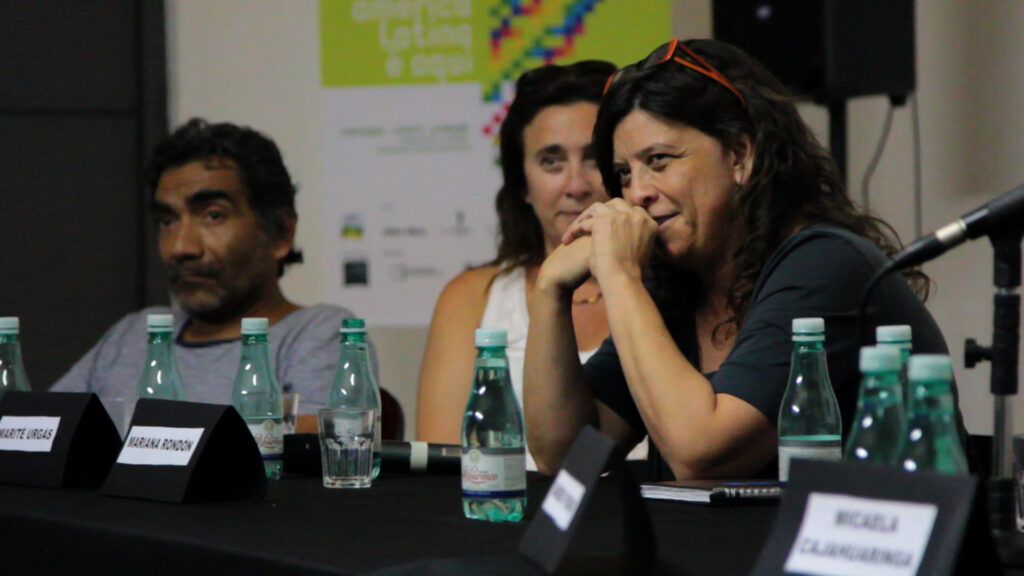
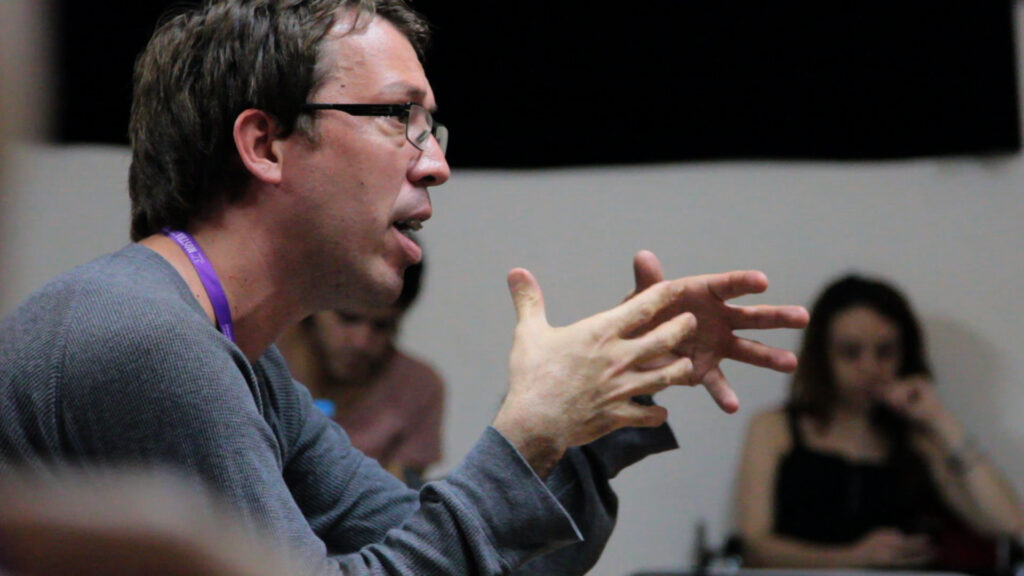
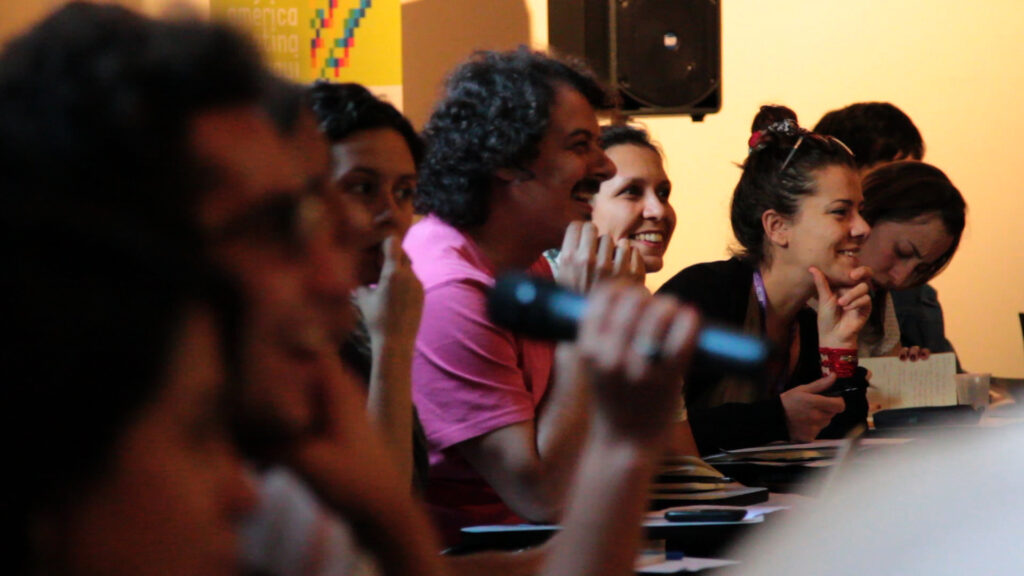
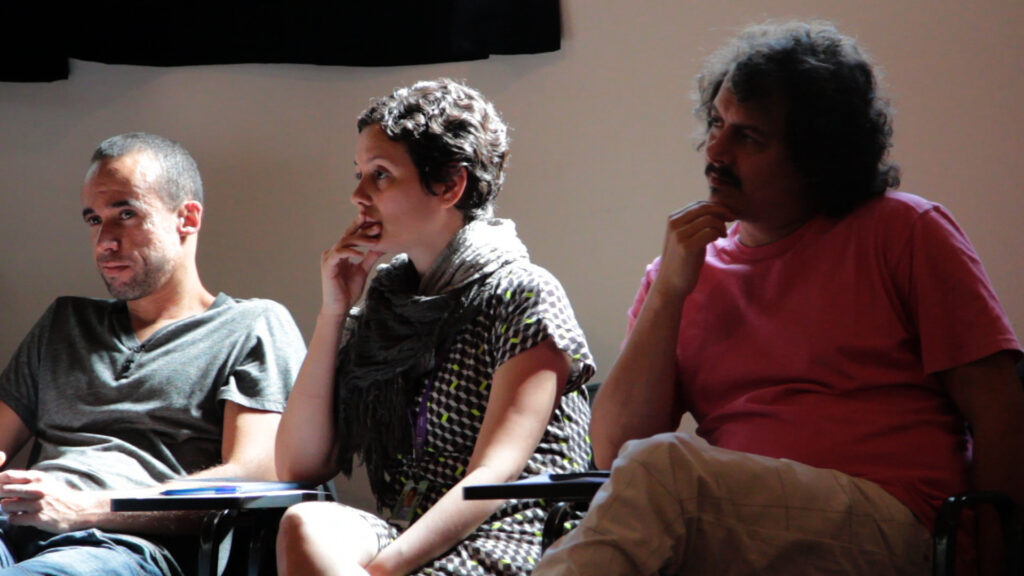
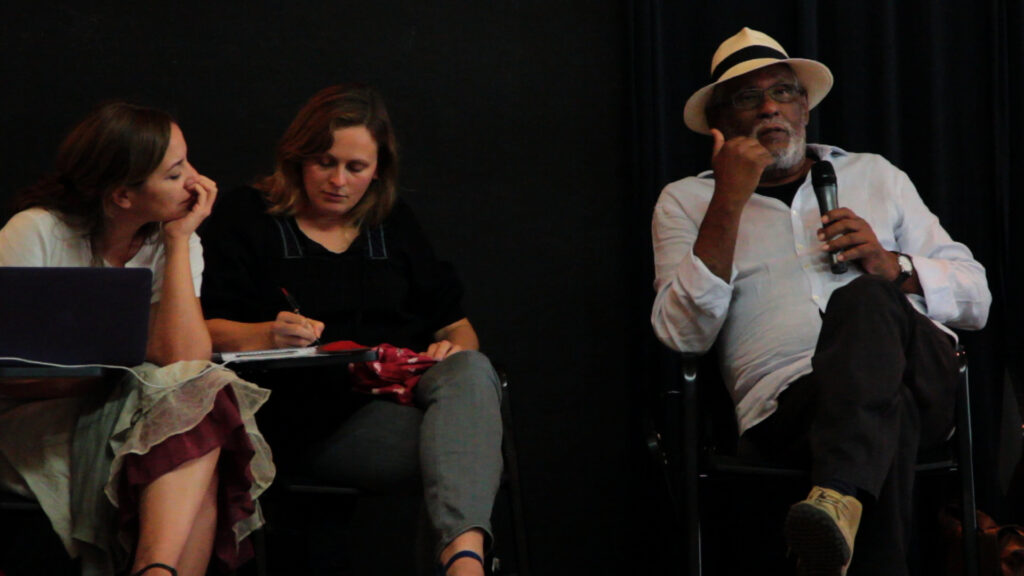
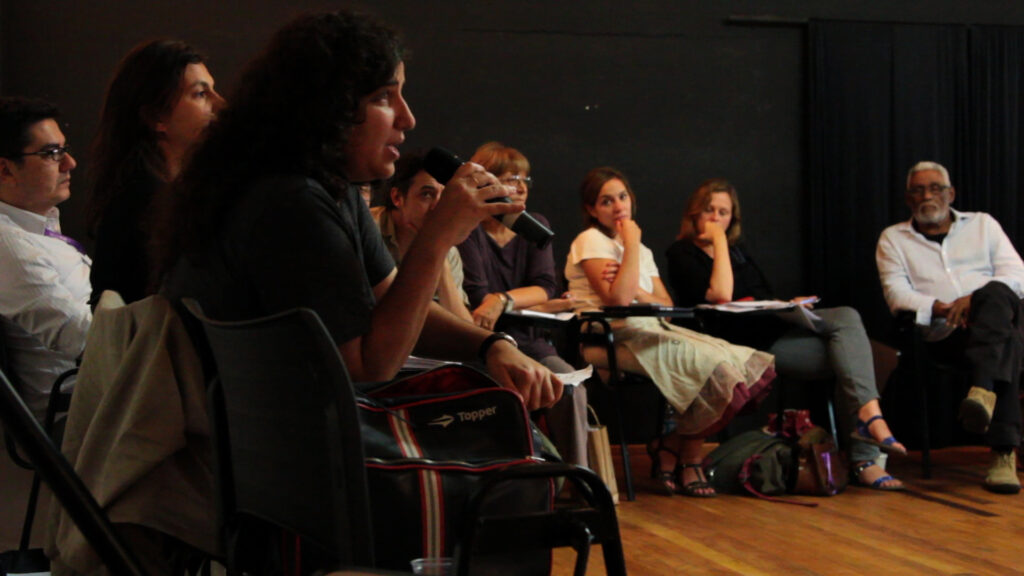
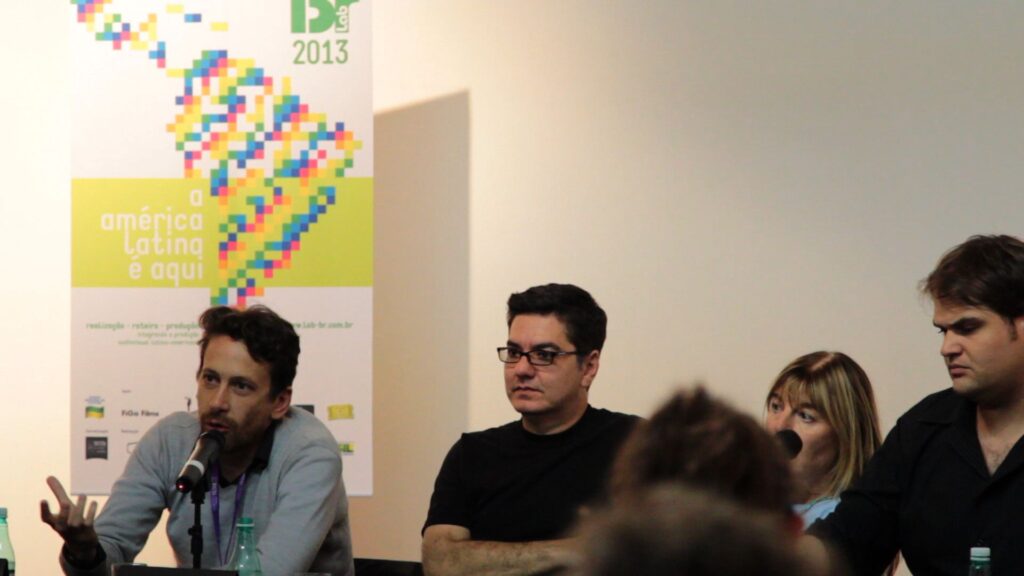
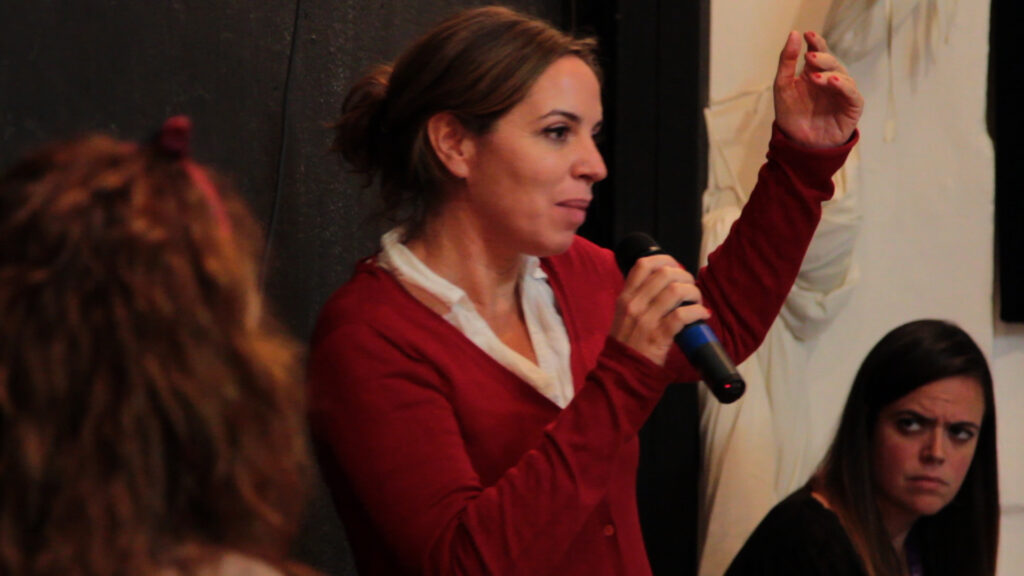
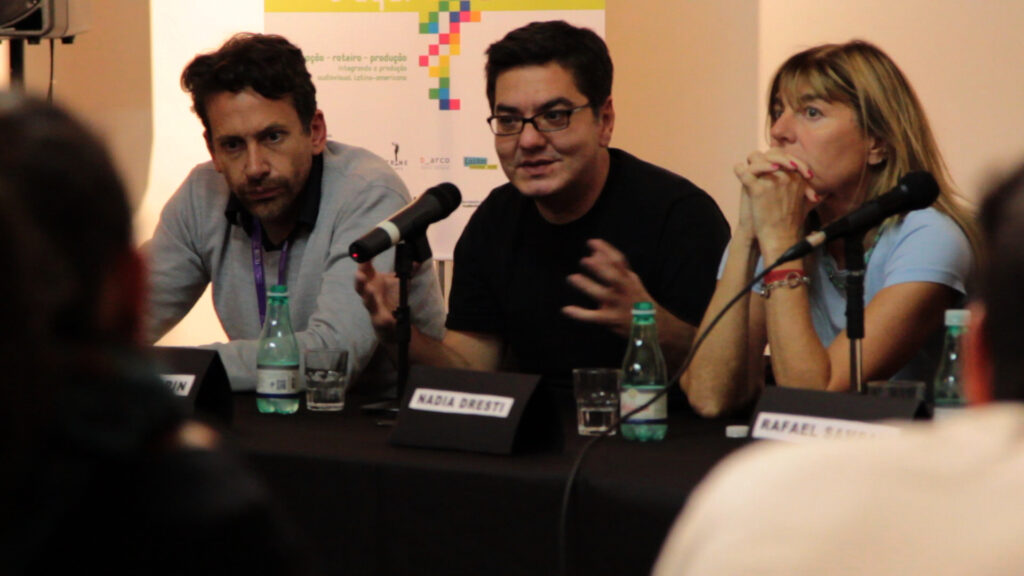

see more
Direction Edgard Navarro
Production Sylvia Abreu
Brazil
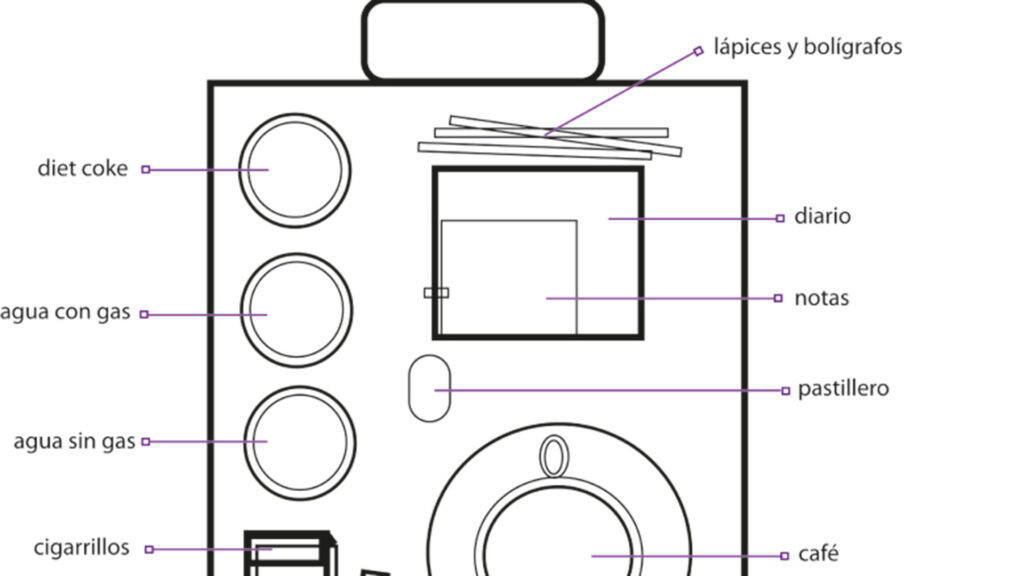
see more
Direction Marcelo Martinessi
Production Karen Fraenkel
Paraguay

see more
Direction Camilo Cavalcante
Production Stella Zimmerman
Brazil

see more
Direction Sérgio Borges
Production Luana Melgaço
Brazil

see more
Direction Juan Carlos Donoso Gómez
Production Daniela Moreno Wray
Ecuador
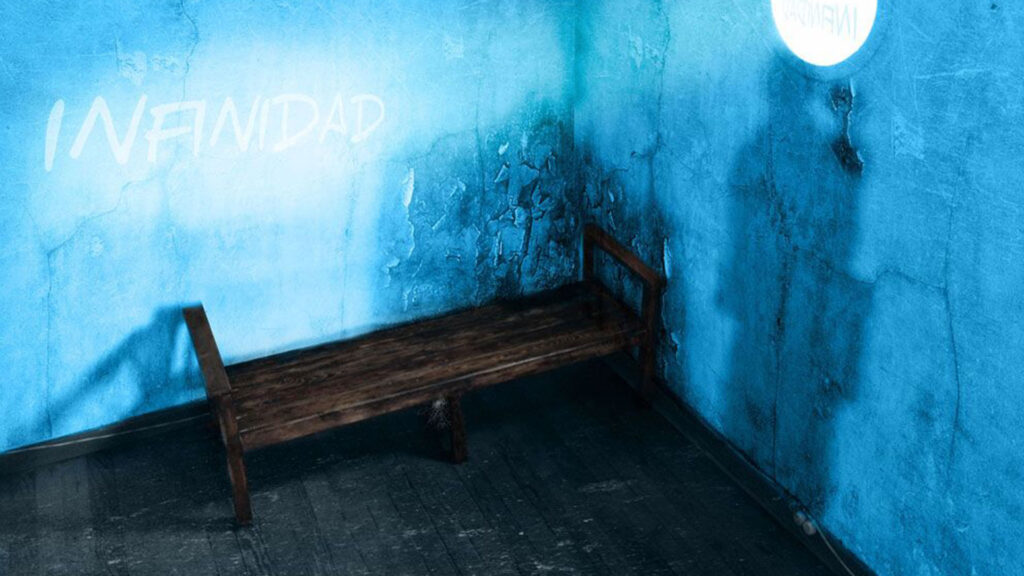
see more
Direction Juan Pablo Ritcher
Production Victoria Guerrero
Bolívia

see more
Direction Tomás von der Osten
Production Ana Paula Málaga
Brazil

see more
Direction Adrián Saba
Production Carolina Denegri
Peru

see more
Direction Marcelo Costa Lordello
Edit Eduardo Serrano
Production Mannu Costa
Production Company Trincheira
Brazil

see more
Direction Camila Urrutia
Production Ines Nofuentes
Guatemala

see more
Direction Omar Zuñiga Hidalgo
Production Amparo Aguirre
Chile
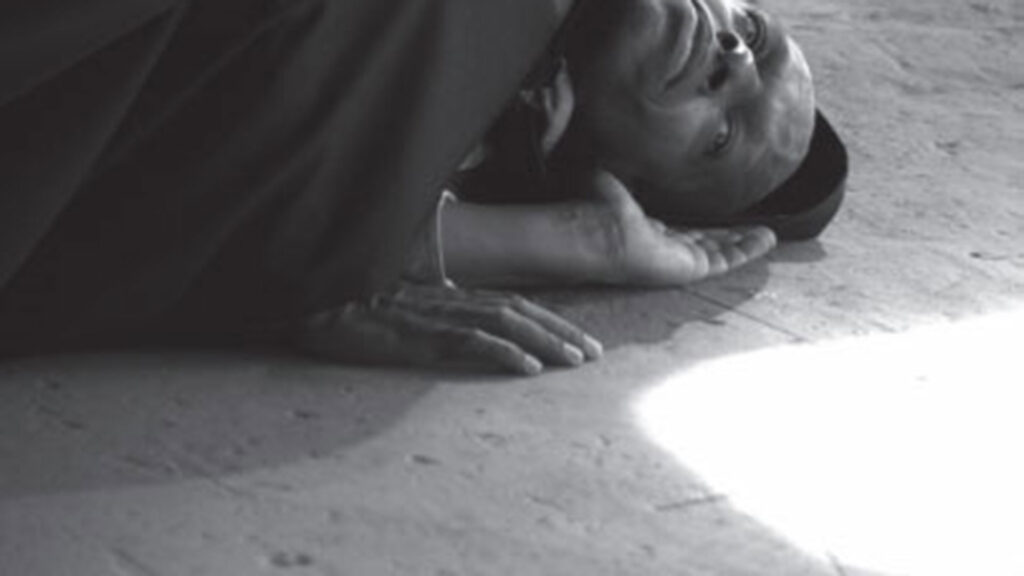
see more
Direction Allan Ribeiro
Production Daniela Santos
Brazil
scriptwriter
selection committee
Director of BrLab and producer
programmer
Cinéma en Développement (France)
producer
film director and screenwriter
tutor
tutor
filmmaker
Director
filmmaker
filmmaker
filmmaker
producer, distributor
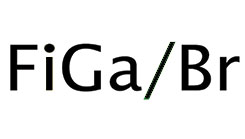
FiGa Films releases fiction and documentaries of any length in the arthouse theatre circuit in North America, as well as on TV, on the internet, and on home-video. Its growing library contains critically acclaimed, award-winning films, acquired at top film festivals around the world.
Privately funded in 2006, FiGa is a true independent voice for the best in filmmaking coming from Latin America, Spain, Portugal, and the rest of the world. Long lasting relationships, with a personal approach, are fundamental to co-founders Sandro Fiorin and Alex Garcia
The company launched its international sales and production branch at the Locarno Film Festival in 2008. FiGa’s first co-production Verano de Goliat (Mexico, 2010) won the Golden Lion for Best Film at the Venice Film Festival that same year. Los Viejos (Bolivia, 2011), A Floresta de Jonathas (Brazil, 2012) and Zach Weintraub’s You make me feel so young (USA, 2013) followed.
FiGa’s mission is to select and sell worldwide rights of features and docs with social relevance, by up and coming directors. Distributing up to six films per year in the US, Canada, Mexico, and Argentina, it is raising the bar and becoming not only the “home of the new Latin-American cinema”, but of other new cinemas from around the globe.
A partner of BrLab since its conception, in 2012 FiGa Films also began to support us formally by granting an acquisition award for one of the participating projects, with which it will work from development up to the distribution stage. The award is aimed at Latin-American films from any country, to be represented internationally/for world sales (excluding the films’ own country and/or co-producing countries).
In 2013, the FiGa Films Acquisition Award was granted to Só um homem só, by Allan Ribeiro.

Founded in 2010, Vitrine Filmes is a company dedicated to the distribution of Brazilian films – investing, by doing so, in the growth and appreciation for Brazilian cinema –, that recently incorporated a few select international titles to its catalogue.
In 2011 the company created and consolidated the collective distribution project Sessão Vitrine, a new and successful distribution model through which a total of 12 Brazilian features were released in over ten capitals. Amongst these titles were Estrada para Ythaca, Os Monstros, Os Residentes and Um Lugar ao sol. The project was a finalist at the IBAC-Escola da Cidade award and the Faz Diferência award of O Globo newspaper, and was elected the Best Cinematic Event of 2011 by the Film Critics Association of Rio de Janeiro.
Since then, the company’s catalogue has not stopped growing in prestige and quality, gathering important titles such as Além da estrada, O Céu sobre os ombros, Girimunho, Histórias que só existem quando lembradas, Vou rifar meu coração and O Som ao redor (explore the complete catalogue in the company’s official website).
Vitrine Filmes’ commitment to Latin American cinema has been there since the company was founded. In 2010 the company released the documentary Terras, by Maya Da-Rin, not only in Brazil but also in foreign countries, such as Peru and the French Guiana. In 2012 uruguayan film La Vida útil became a part of its catalogue as the first foreign film distributed by the company. In the same manner, in 2013 Vitrine released Pablo Giorgielli’s first feature film, Las Acacias, in Brazil.
Vitrine Filmes reaffirms its commitment to Latin American cinema by supporting BrLab for the second year in a row, by granting an acquisition award for a foreign (non-Brazilian) film project that has taken part in the activities. BrLab wishes to recognize the great work that has been carried out by Vitrine Filmes, and to thank them for the support and willingness to preserve this unprecedented space in our country, one that gathers ideas, talents and quality projects for Latin American cinema.
In 2013, the Vitrine Filmes Acquisition Award was granted to Huaquero, by Juan Carlos Donoso.
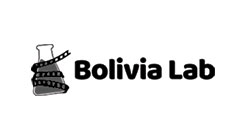
For five years now, Bolivia Lab has encouraged growth in Ibero-American cinema and education by implementing spaces dedicated to projects in development, analysis and doctoring for screenwriters, support and service grants for films in post-production, market events and film exhibits.
This year, once again we have renewed our mutual partnership with Bolivia Lab aiming to continue to nurture the professionals we welcome. Just as one of the participating projects at Bolivia Lab is invited to be a part of the BrLab selection, the bolivian lab has chosen a director and a producer from the same project to take part in its next edition, which will be held on July 2014, in La Paz.
In 2013, the Bolivia Lab Award was granted to Lá fora está tudo calmo, by Tomás Van Der Osten.
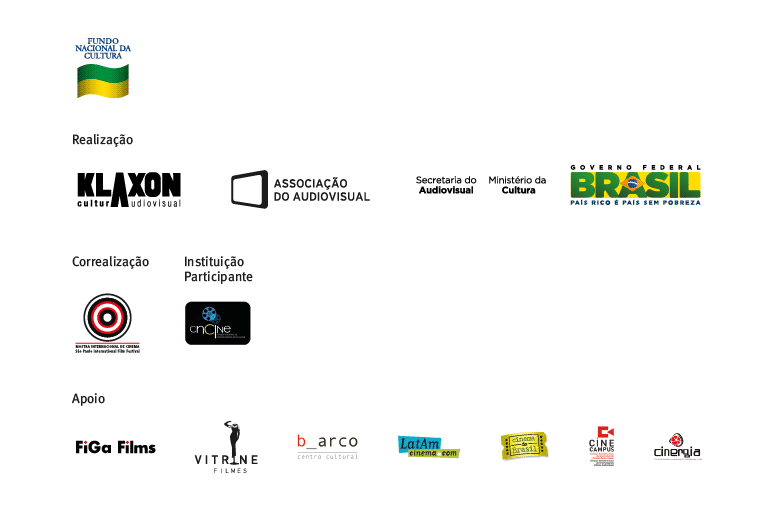
Select your interests and don’t miss out
everything that happens at BrLab